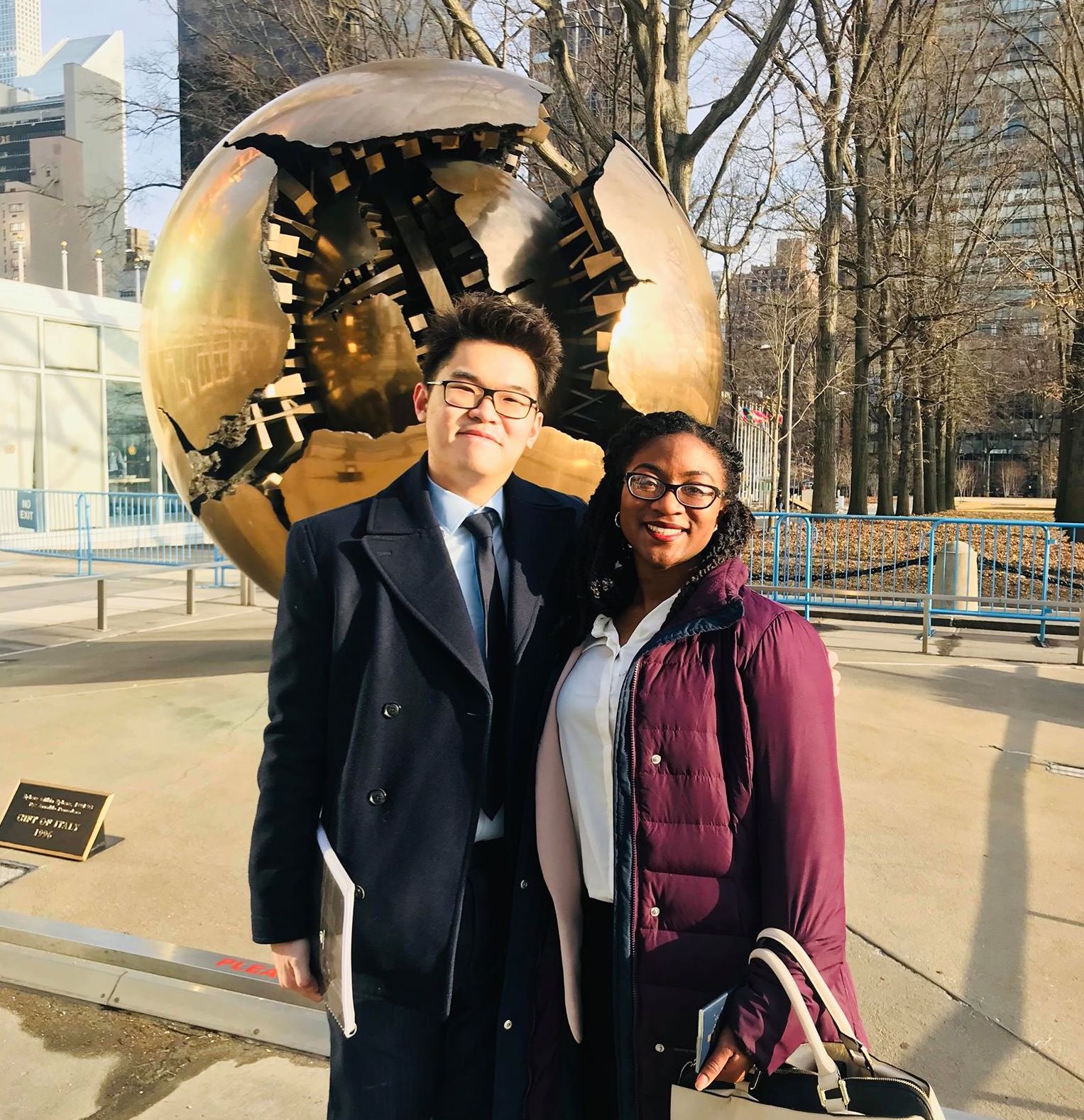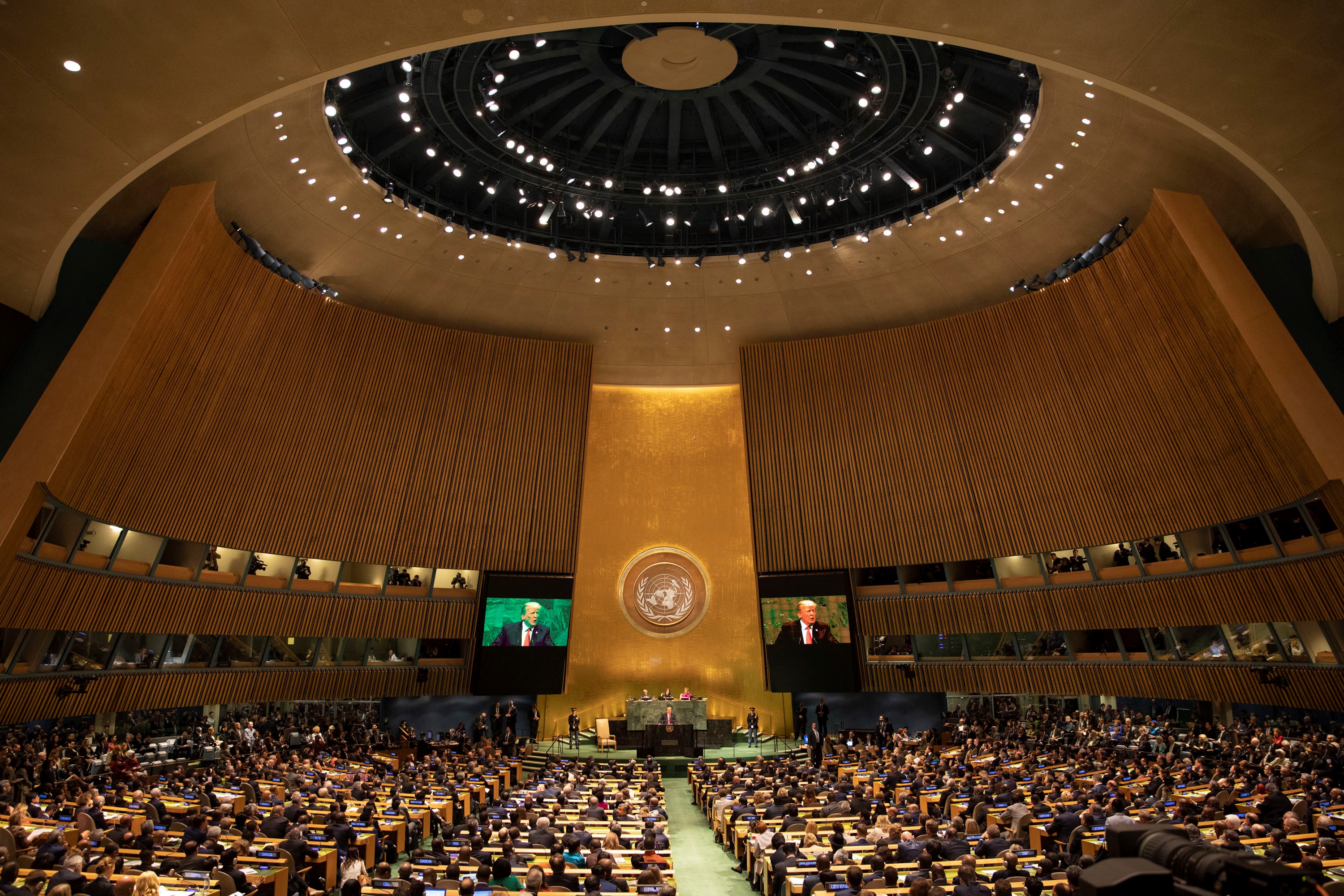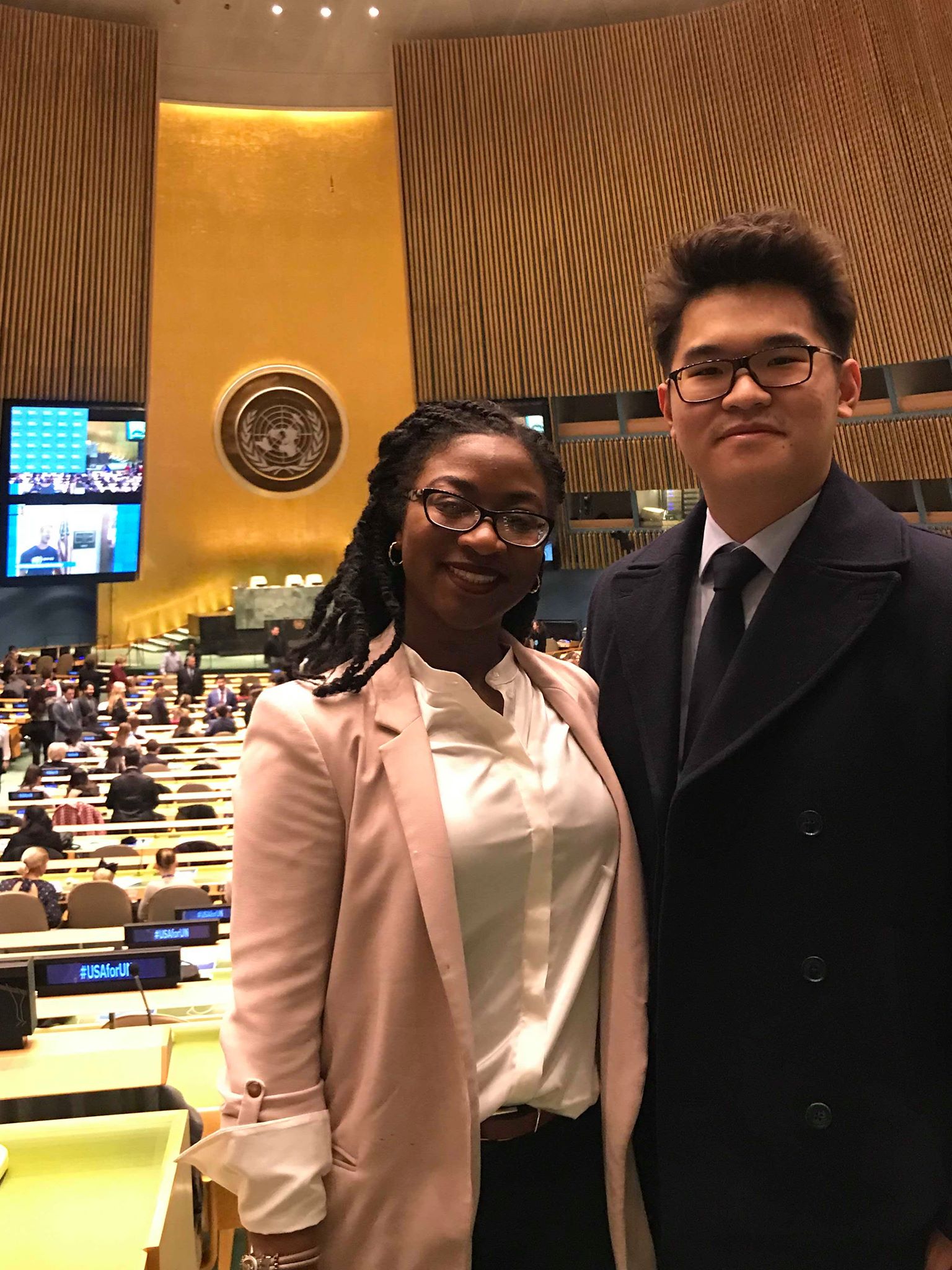The Future of the United Nations

The United Nations has been around for seven decades, yet whether it has achieved its goals is questionable. In late February 2019, AUP senior, Zhaohan "Kevin" Shen, and graduate student Courtney Danielle Kelley went to visit the United Nations (UN) headquarters in New York City. There they joined 1,900 participants to attend the United Nations Association of the United States of America's (UNA-USA) Global Engagement Summit. There they asked members of the UN on how today's great issues are being tackled.
Zhaohan "Kevin" Shen and Courtney Kelley at the United Nations in New York City. Image credit: Zhaohan "Kevin" Shen.When the United Nations was found, on 24 October 1945, its focus was to preserve world peace. The horrors of the Second World War taught the world that an international mechanism for conflict resolution was needed to avoid another global conflict. A need for global empathy and a willingness to elevate human suffering. This would require a Universal Declaration of Human Rights for the United Nations, for which Eleanor Roosevelt, the chair of the United Nations Human Rights Commission in 1946, was the driving force. In 1948, as the draft to the General Assembly was submitted for approval, Roosevelt declared:
"We stand today at the threshold of a great event both in the life of the United Nations and int he life of mankind. This declaration may well become the international Magna Carta for all men everywhere."
Fast-forward seven decades, and one of the fundamental problems in the world is the deficit of trust in the effectiveness of multilateralism, as noted by UN Secretary-General, António Guterres. Countries and their citizens are questioning the value of international institutions in the face of international conflicts and global suffering. The theme of the summit, Shared Partnerships-Share Responsibilities, had several goals: to inform youth leaders of the work the UN has accomplished, and how the UN intends to address further issues.
At the 2019 Global Engagement Summit, UN Secretary-General António Guterres voiced the urgent need to address the challenges of this age: "We are living in testing times from climate change to migration, to terrorism and to the downside of globalization." Since the creation of the United Nations in 1945, the world has consistently experienced global issues that transgress national boundaries.
These current concerns are legitimate, as the world faces growing threats. There is a lack of a unified global consensus to effectively deal with the discontents of globalization in a coherent and logical manner. For instance, the United Nations is facing a "two-front campaign" that aim to reduce emissions across the world and mitigate the effects of climate change, which affect developing countries the most. Despite the 2015 Paris Climate Accord, resistance from the United States, which makes up roughly 15 percent of global carbon emissions, have slowed the fight against climate change. As borders continue to become irrelevant, especially in the case of carbon emissions, multilateral actions must be taken.
The United Nations General Assembly, where most of the summit's meetins were held. Image credit: Wikimedia/A947.Another issue that plays an important role in the global arena is that of the refugee crisis. Largely caused by the conflict in Syria and the rise of Daesh, the fragmented response of the European Union and the United States have resulted in a humanitarian crisis. Migrants attempt to get to countries like Greece and Italy, a journey that has caused many deaths and concerns in the global community. In the UN Secretary-General's speech held at the Global Engagement Summit, he referred to the need for countries to come together and reaffirm the foundation of international law. He additionally welcomed states such as Yemen and Lebanon to the conference, thanking them for taking in a vast number of refugees.
Technological advancement such as artificial intelligence and the spread of "fake news" on the internet are newer challenges that the international community must overcome. As the UN braces for a new, constantly advancing, technological age, actions must be taken to protect privacy, mitigate the spread of "fake news" and control the use of "command and control" AI technology in nuclear weapons. These technological adancements have led to discussions on digital human rights.
The United Nations must continue to stand together under a global consensus and advance innovative policy recommendations to keep up with global trends. The constantly changing world continues to pose challenges, for which the United Nations and the international communiity must find and create solutions.
Zhaohan "Kevin" Shen and Courtney Danielle Kelly inside of the conference room at the United Nations in New York City. Image credit: Zhaohan "Kevin" Shen.









